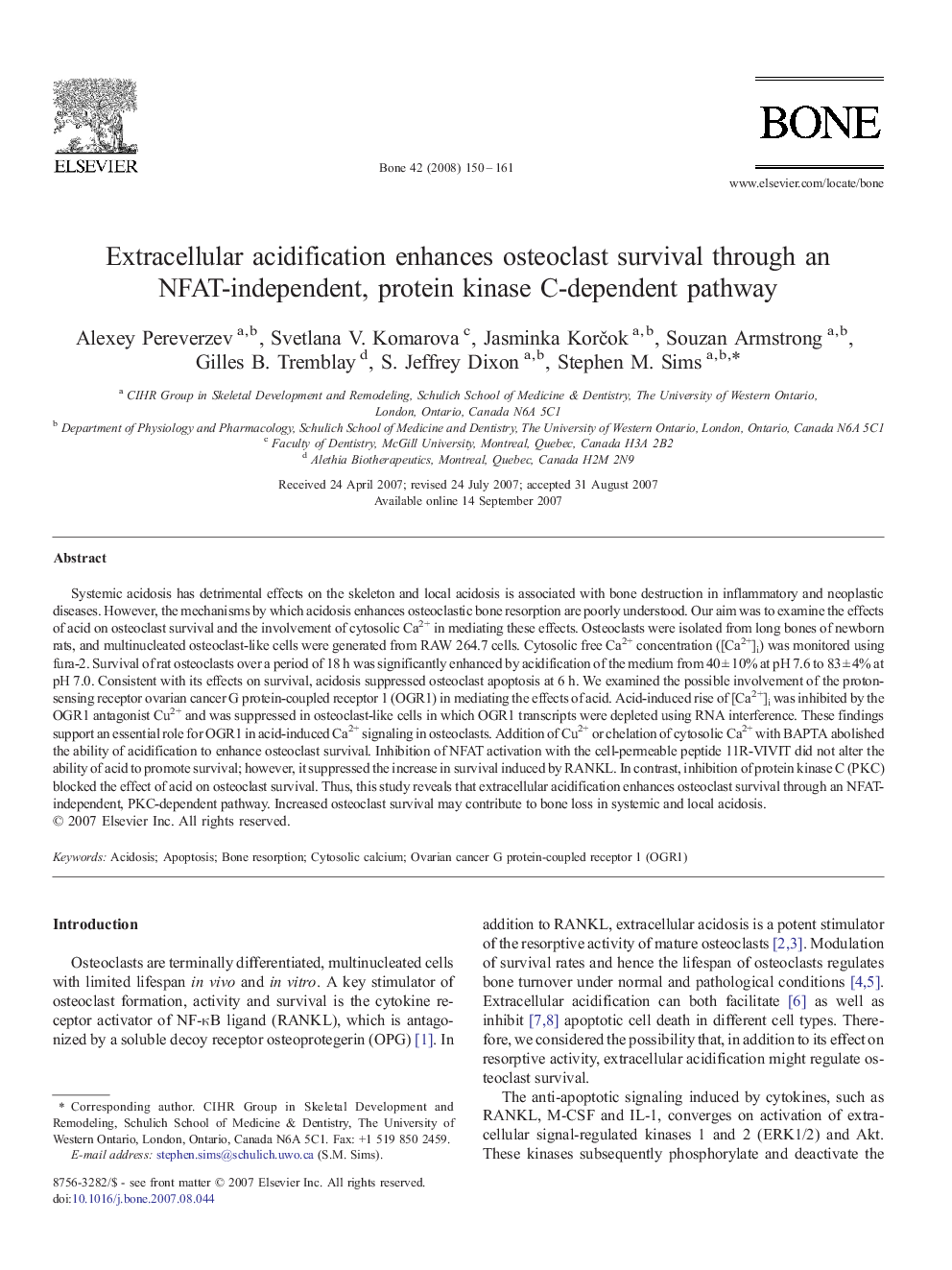| کد مقاله | کد نشریه | سال انتشار | مقاله انگلیسی | نسخه تمام متن |
|---|---|---|---|---|
| 2782548 | 1153352 | 2008 | 12 صفحه PDF | دانلود رایگان |

Systemic acidosis has detrimental effects on the skeleton and local acidosis is associated with bone destruction in inflammatory and neoplastic diseases. However, the mechanisms by which acidosis enhances osteoclastic bone resorption are poorly understood. Our aim was to examine the effects of acid on osteoclast survival and the involvement of cytosolic Ca2+ in mediating these effects. Osteoclasts were isolated from long bones of newborn rats, and multinucleated osteoclast-like cells were generated from RAW 264.7 cells. Cytosolic free Ca2+ concentration ([Ca2+]i) was monitored using fura-2. Survival of rat osteoclasts over a period of 18 h was significantly enhanced by acidification of the medium from 40 ± 10% at pH 7.6 to 83 ± 4% at pH 7.0. Consistent with its effects on survival, acidosis suppressed osteoclast apoptosis at 6 h. We examined the possible involvement of the proton-sensing receptor ovarian cancer G protein-coupled receptor 1 (OGR1) in mediating the effects of acid. Acid-induced rise of [Ca2+]i was inhibited by the OGR1 antagonist Cu2+ and was suppressed in osteoclast-like cells in which OGR1 transcripts were depleted using RNA interference. These findings support an essential role for OGR1 in acid-induced Ca2+ signaling in osteoclasts. Addition of Cu2+ or chelation of cytosolic Ca2+ with BAPTA abolished the ability of acidification to enhance osteoclast survival. Inhibition of NFAT activation with the cell-permeable peptide 11R-VIVIT did not alter the ability of acid to promote survival; however, it suppressed the increase in survival induced by RANKL. In contrast, inhibition of protein kinase C (PKC) blocked the effect of acid on osteoclast survival. Thus, this study reveals that extracellular acidification enhances osteoclast survival through an NFAT-independent, PKC-dependent pathway. Increased osteoclast survival may contribute to bone loss in systemic and local acidosis.
Journal: Bone - Volume 42, Issue 1, January 2008, Pages 150–161